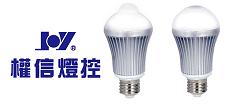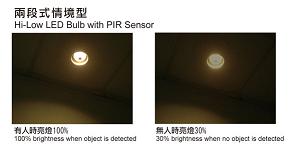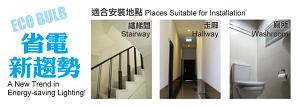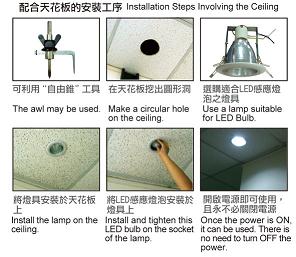In accordance to global warming, in order to save electricity, lighting sensors have become widely used in areas where there is little passing traffic. Passive infrared (PIR) lighting sensors adopt the human body moving detection principle to control several lights on the same circuit. Also, we can use many PIR lighting sensors to control several lights on many circuits. Thus, detection area, lighting area and illumination can be planned flexibly. However, as for smaller spaces and little demand for lighting, the PIR lighting sensor combined with an illuminant is a convenient design for users.
Joint Security has come to apply PIR sensors. As the use of LED lighting is growing, we have introduced “LED bulb with PIR sensor” in place of “one PIR lighting sensor plus one light” to let lighting become automated --- namely, when one object enters the detection area, the light will switch ON; when the object leaves the detection area, the light will switch OFF. Take 9W LED bulb with PIR sensor as an example. This sensor light bulb’s illumination is approximately equal to the 60W incandescent light bulb. The light bulb switches ON 30 times per day (2 minutes/time). The total annual power consumption is less than 8kWh, and the power expense is less than 1 US dollar. Besides, the light bulb has a long lifespan, so it can save the cost of maintenance. LED bulb with PIR sensor is suitable for use in restroom, elevator hall, hallway, storage … etc.
In addition to the basic type, Joint Security has designed Hi-Low LED bulb with PIR sensor. When one enters the detection area, the bulb becomes completely bright (100% brightness). When he or she leaves, its brightness decreases by 30% after 2 minutes. If the environmental luminance is over 70~130 lux, the bulb is completely OFF. The purpose of this design is the energy-saving function combined with the keeping of brightness to a certain extent, suitable for lobby, elevator hall … etc.
As we are entering the energy-saving era, we believe that the use of LED bulb with PIR sensor will become the new trend of energy-saving lighting in the future.



















